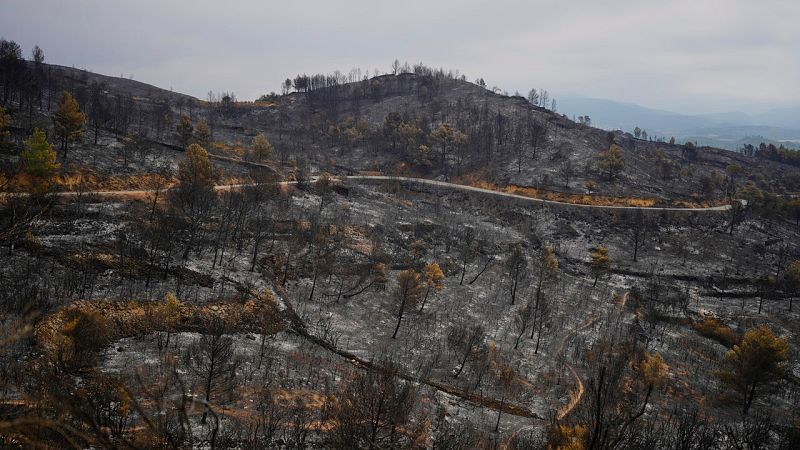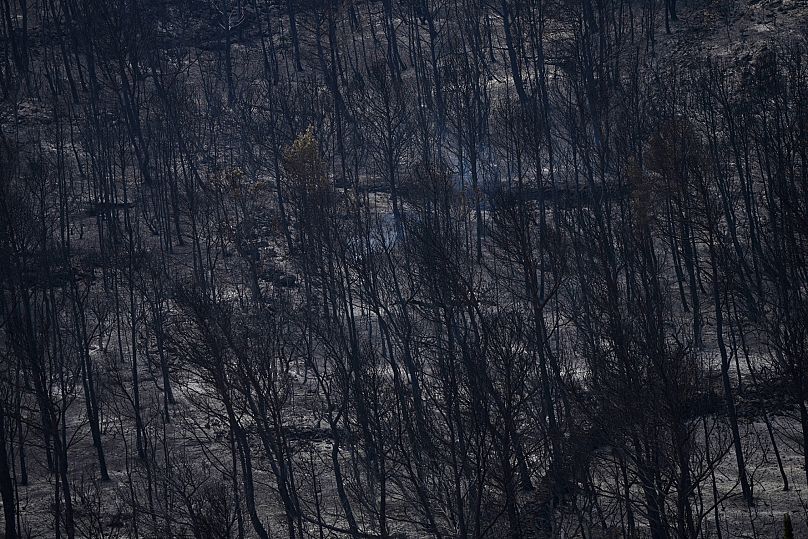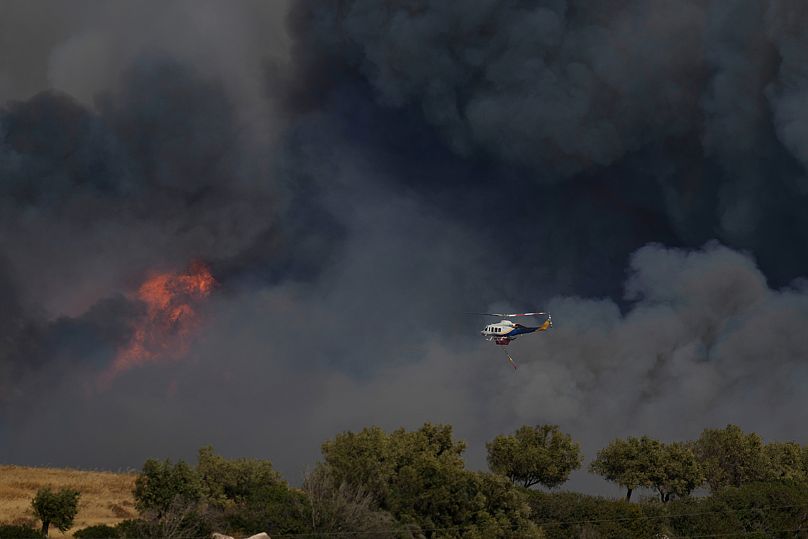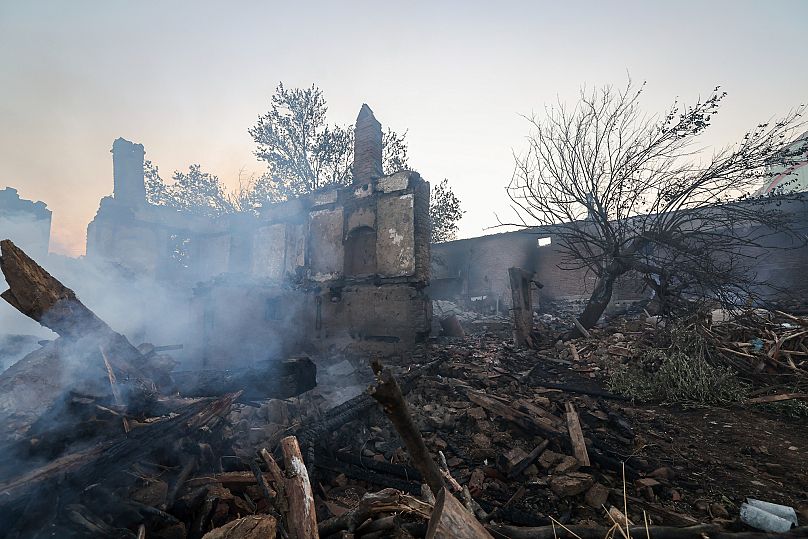Wildfires rage across southern Europe amid record temperatures

Firefighters are battling wildfires across southern Europe as extreme heat grips the region with record-breaking temperatures.
In France, About 1,400 firefighters were deployed on Saturday in France's southern Aude region to prevent the country's largest wildfire in decades from reigniting, as all residents were allowed to return to their homes.
Aude prefect Christian Pouget said the fire has been contained since Thursday after burning more than 160 square kilometres this week in the wooded region, known for its wineries.
All roads have been reopened but authorities issued a strict ban on accessing the forest, Pouget said at a news conference on Saturday.
“The fight is continuing, firefighters are still working on (fire) re-ignition,” he said.
The blaze left one person dead and 25 people have been injured, including 19 firefighters, Pouget said.
High temperatures in the coming days are expected to complicate firefighters' efforts.
“The fire won’t be extinguished for several weeks,” Col. Christophe Magny, director of Aude firefighters department, said, pointing to several “hot spots” that are being closely monitored.
France’s national weather agency Meteo France placed the southern half of France under “high vigilance” alert for heat wave, with temperatures expected in the Aude region of up to 39°C on Saturday.
Fires continue in Spain and Greece
Firefighters also continued to battle an active wildfire in Avila province, central-western Spain on Saturday.
The fire began on Friday afternoon, with the Spanish Military Emergencies Unit (UME) working through the night in an effort to bring it under control and prevent it from approaching roads and train lines.
With temperatures reaching close to 39°C in parts of Spain and Portugal, fire risk is extremely high.
The current period of extreme temperatures is expected to continue until at least next Wednesday, according to Spain's national weather service AEMET.
In Greece, a large wildfire that erupted on Friday afternoon in Keratea, some 40 kilometres southeast of Athens, continued to rage across eastern and southern Attica through the night, causing significant damage to homes and claiming one life.
Authorities issued evacuation orders as the blaze approached residential areas while firefighters battled strong winds.
At least 260 firefighters, supported by 77 vehicles, were working to contain the blaze, with numerous volunteers and civilians assisting in the affected areas.
Wildfire in Turkey under control
Wildfires in the central districts of Canakkale and the Bayramic area in western Turkey have been largely brought under control, according to Agriculture and Forestry Minister Ibrahim Yumakli.
Yumakli stated that firefighting teams worked throughout the night to halt the advance of the blazes. He confirmed that the spread of the fires had been stopped and that cooling efforts are ongoing.
The fire, which broke out on Friday near Yigitler village and spread to a forested area under strong winds, had prompted precautionary evacuations in the villages of Sacakli, Ahmetceli, Doganca, Zeytinli, and Pitirelli.
A total of 654 residents were relocated to safe zones. Authorities reported that four suspects have been taken into custody as part of the ongoing investigations into the cause of the fires.
A new normal
Southern Europe has seen multiple large fires this summer. Scientists warn that climate change is exacerbating the frequency and intensity of heat and dryness, making the region more vulnerable to wildfires.
This week, the UN World Meteorological Organisation (WMO) released a report detailing the impact of extreme heat worldwide.
The report indicated that extreme temperatures caused approximately 489,000 heat-related deaths annually between 2000 and 2019, with 36% occurring in Europe
In this record-breaking July, Turkey recorded an extreme new national high of 50.5°C, it said. Sweden and Finland also experienced unusually long spells of temperatures above 30°C.
The WMO warns that countries need to act faster to adapt to climate change and limit global warming, in line with the 2015 Paris Agreement.
“Extreme heat is sometimes called the silent killer, but with today’s science, data and technologies, silence is no longer an excuse. Every single death from extreme heat is preventable,” said WMO Deputy Secretary-General Ko Barrett.
The organisation estimates that scaling up heat-health warning systems in 57 countries alone could save nearly 100,000 lives annually.
“This is not just a climate issue, it’s a public health emergency,” said Joy Shumake-Guillemot, lead of the WHO-WMO Climate and Health Joint Programme and co-lead of the Global Heat-Health Information Network (GHHIN).
Today




